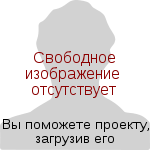- Octavio Novaro
-
Octavio Novaro 
Born 4 July 1939 [1]
Mexico City, MexicoResidence Mexico City Nationality Mexican Fields Chemical Physics Institutions Institute of Physics, National Autonomous University of Mexico Alma mater National Autonomous University of Mexico Doctoral advisor Marcos Moshinsky [1] Known for Research on catalysis phenomena [2] Notable awards UNESCO Science Prize (1993), National Prize for Arts and Sciences (Mexico, 1983) Octavio Augusto Novaro Peñalosa (born on 4 July 1939) is a prominent theoretical physicist specialized in theoretical catalysis, physical chemistry, biophysics and geophysics. He received the National Prize for Arts and Sciences in 1983 and became the first Mexican researcher to receive the UNESCO Science Prize in 1993. Since 1995 he is also one of the forty life-time members of The National College.[1]
Novaro Peñalosa was born in Mexico City and graduated from the National Autonomous University of Mexico with a bachelor's degree (1965), a master's degree (1968) and a doctorate degree in Physics (1969) under the supervision of Marcos Moshinsky. Later on, he worked in postdoctoral research programs in Sweden, Italy, Turkey and the United States.[1]
He has worked as a professor researcher at the National Autonomous University of Mexico since 1971 and for over fifteen years he has worked and advised the Mexican Institute of Petroleum, where he has designed several catalysts used in the petrochemical industry.[3] During his career he has published over 225 articles, 4 books, obtained 4 patents and some of his former students have become rectors in China or heads of laboratories in France, Poland and Scotland.[1]
According to his résumé, he is also an accomplished polyglot who is fluent in Spanish, English, French, Italian and Portuguese; translates, reads and writes German, Russian and Greek and speaks both Chinese and Japanese.[1]
References
- ^ a b c d e f El Colegio Nacional. "Curriculum de Octavio Novaro" (in Spanish). http://www.colegionacional.org.mx/SACSCMS/XStatic/colegionacional/template/content.aspx?se=curriculum&te=detallemiembro&mi=134. Retrieved 2008-06-13.
- ^ Federico Mayor (1993-11-08). "UNESCO Science Prize citation". http://unesdoc.unesco.org/images/0009/000961/096180E.pdf. Retrieved 2008-06-13.
- ^ Institute of Physics (UNAM). "Biography" (in Spanish). http://www.fisica.unam.mx/departamentos/teorica/index.php?option=com_investigadores&idInvestigador=83&Itemid=30. Retrieved 2008-06-13.
Categories:- Mexican people stubs
- North American scientist stubs
- Physicist stubs
- Mexican physicists
- UNESCO Science Prize laureates
- Members of El Colegio Nacional
- National Autonomous University of Mexico faculty
- National Autonomous University of Mexico alumni
- People from Mexico City
- 1939 births
- Living people
Wikimedia Foundation. 2010.
